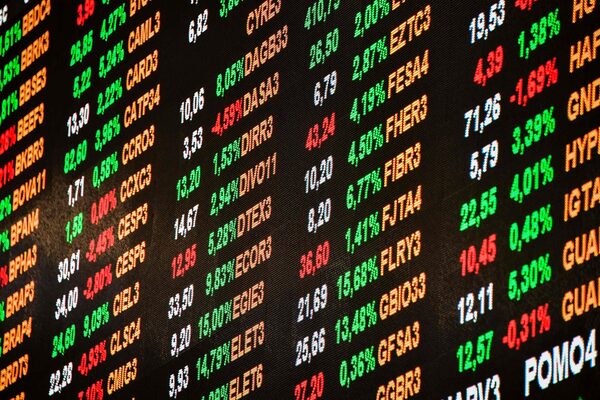
The index chart is seen on an electronic board at the Sao Paulo Stock Exchange (B3) in Sao Paulo, Brazil, the day after Brazilian first round presidential election, Oct. 8, 2018.NELSON ALMEIDA/AFP/Getty Images
Brazil’s real firmed more than 2 per cent on Monday and stocks were on track to mark their highest close in nearly five months, after a strong first-round showing for far-right presidential candidate Jair Bolsonaro raised hopes for much needed economic reforms.
Mr. Bolsonaro trounced expectations by winning 46 per cent of the votes on Sunday, 17 percentage points more than main rival, leftist Fernando Haddad.
Investors overwhelmingly prefer Mr. Bolsonaro as they believe that he will tackle the cost of Brazil’s pension system and its rising debt load with the help of University of Chicago-trained economic adviser Paulo Guedes.
“Bolsonaro’s larger-than-expected victory should enhance his political capital, increasing the likelihood that, should he get elected, he will be able to negotiate a working majority in Congress … increasing the chance that his fiscal austerity measures will be approved,” ING said in a note.
But, given the gains accumulated on election optimism by the real and stocks, market watchers warn of the rally’s lack of sustainability. With most polls last week showing a win for Mr. Bolsonaro in the first round, the currency had added 5.4 per cent on the week and the stock market 3.8 per cent.
Furthermore, “power within Congress is now going to be split amongst a larger number of parties. This is going to make the horse trading that is part and parcel of Brazilian politics more difficult,” said Edwin Gutierrez, head of emerging market sovereign debt at Aberdeen Standard Investments.
“While Brazil has undergone a big shift in terms of party politics, nothing has changed the patronage system, which Bolsonaro is going to have to master very quickly to advance his agenda,” Mr. Gutierrez added.
The real rose for a sixth straight day, and the benchmark stock index was 4.4 per cent higher led by gains in state-run power companies Eletrobras and Cemig, which added more than 17 per cent each.
Mr. Bolsonaro has said he would proceed with plans to privatize Eletrobras. Cemig, a utility for the state of Minas Gerais, was lifted by similar hopes as two market-friendly candidates advanced to the second round of the election.
State-controlled oil company Petrobras surged nearly 11 per cent and was the biggest point contributor to the Bovespa’s rally, as concern eased about a potential win for Mr. Haddad, whose Workers Party had threatened to interfere in the company’s management.
Stocks in Buenos Aires’ Merval index also rose, with local shares of Brazil’s state-run oil firm Petrobras leading gains with a more than 10 per cent rise.
The peso rose for a fifth session in six, buoyed by central banks sale of short-term notes at uber-high rates.
Meanwhile, Mexico’s currency declined as the dollar gained on worries on Italy’s budget. Stocks on Mexico City’s IPC tracked a slump in global equities led by Chinese stocks on rising fears of the Sino-U.S. trade war.